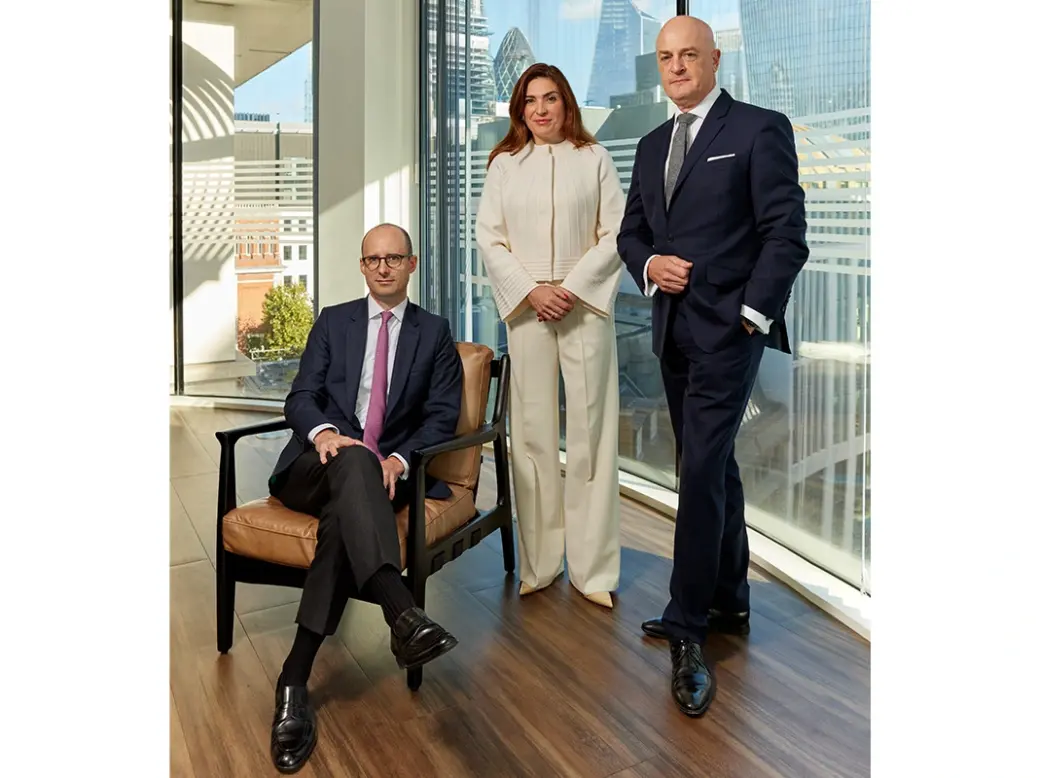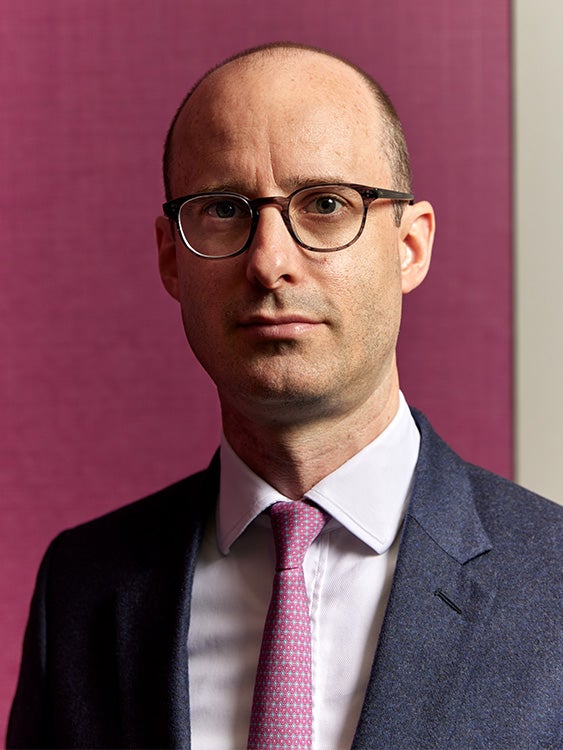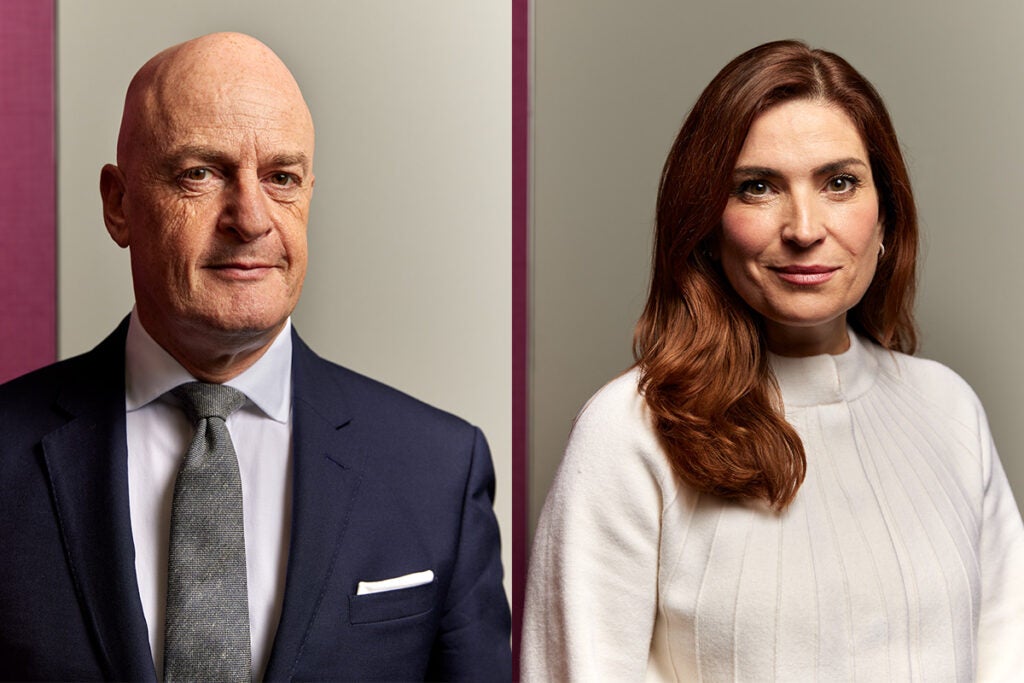
‘Schillings’. In certain circles, no other law firm’s name is so pregnant with meaning. Founded in 1984, it garnered a reputation in the 1990s and 2000s as a fearsome protector of privacy for celebrity clients such as Brad Pitt and Angelina Jolie, JK Rowling, Gordon Ramsay, Liz Hurley and a number of Premiership footballers. The mere sight of a letter on Schillings headed paper became enough to send a chill down the spine of any journalist brave or foolish enough to receive one.
At that time, the firm’s own reputation was boosted by that of its colourful co-founder Keith Schilling, dubbed ‘the Silencer’ thanks to his efficient muzzling of unhelpful media reports about his clients. A journalist who went out with Schilling later claimed that he’d asked her to sign an NDA on their second date, before paying her £1 to make it legally binding.
In his day-job he was extraordinarily influential, successfully using the right to privacy enshrined in Article 8 of the European Convention on Human Rights (ECHR) both to shield clients from the British tabloids and to shape the evolution and application of privacy law in England and Wales. Today, Schilling remains senior partner, focused on shaping litigation strategy for clients. But the business has gradually undergone a transformation.
Schillings: no longer a ‘law firm’

Indeed, the company that many people still regard as London’s most fearsome law firm is arguably no longer a ‘law firm’ at all; it is licensed as an ‘alternative business structure’, and 40 per cent of its client-facing staff are non-lawyers, with backgrounds in a range of different specialisms. Speaking to Spear’s at the firm’s City of London headquarters, CEO David Imison – a former KPMG management consultant who stepped up to the top job in May 2022 – explains that he is continuing an evolution that was just getting under way when he joined the company in 2012. That was the year Schillings acquired the cybersecurity business Vigilante Bespoke. It went on to add further expertise in intelligence and investigations to help protect its clients from data breaches, hacking and the continued development of threats posed by the internet and social media.
Overall, Schillings now has a headcount of around 120, of whom 18 are partners. Both headcount and turnover have roughly tripled in the past decade.
[See also: Reputation management in 2023: TikTok, SLAPPs and Schillings’ new PR division]
Imison says that if the celebrity clients and battles with the tabloids were the first stage of the firm’s development, and its efforts to bring on the expertise required to counter digital threats were its second, then under his leadership it is now entering its third. The latest watershed moment is the launch of a strategic communications business, Schillings Communications. Until now, Schillings largely collaborated with specialist third-party consultancies to carry out the communications work associated with clients’ matters, but it is now bringing this in-house.
All sorts of motivations have been ascribed to the move. FT columnist John Gapper went so far as to describe it as ‘an admission of vulnerability’. There have also been murmurs that the work for the Duke and Duchess of Sussex, which has been led by Spear’s Top Flight reputation lawyer Jenny Afia, might have had a more positive impact overall if it had been less influenced by a US PR firm.
A ‘frictionless’ reaction in high-stakes situations

The reason Imison gives is simpler: when the stakes are high, action must be comprehensive, strategic and rapid. ‘We became clear that if you’re dealing with a high-stakes situation – not your sort of run-of-the-mill issue where you’ve got two weeks to consider a strategy, but something really big, a bet-the-ranch issue – then it needs to be as frictionless as possible.’
In those moments it adds unwanted complexity if a client must instruct multiple firms and, Imison says, ‘you’ve got to rely on those two firms coming together very quickly in the heat of a crisis, and having some working relationship’, which remains ‘a big gamble’.
[See also: The best reputation and privacy lawyers for high-net-worth individuals]
To deliver on the new strategy, he has brought in founding partners George Pascoe-Watson, a former political editor of the Sun who went on to be senior partner and then chairman of communications firm Portland, and Victoria O’Byrne, who has been described as ‘New Labour royalty’, having worked in corporate communications for the party under Tony Blair and served as a special adviser to Dame Tessa Jowell when she was Olympics minister. O’Byrne has also had spells as group corporate affairs director at Virgin and communications secretary to the Prince and Princess of Wales.
Although the new business is a distinct corporate entity, clients will experience a ‘completely integrated seamless service at a moment of need’, says Imison. The comms division is intended to be another ‘front door’ for the business, serving as an entry point for clients who might subsequently benefit from (and pay for) its intelligence, investigations or legal services. If the setup means other comms firms are no longer so eager to refer their own clients to Schillings lawyers, then so be it. ‘It’s something we’ve looked at in detail,’ says Imison. ‘And we’ve made the commercial decision on the basis of that detail.’

In any case, O’Byrne does not see herself in competition with ‘steady-state PR’. Imison adds that ‘the thing that knits [the Schillings proposition] together, it’s the client and their high-stakes opportunities and threats… So we’re not there for the day-to-day business, we’re there when it’s a particularly big deal [or] a particularly major threat, and they need our expertise in quite an acute moment.’
[See also: the best reputation managers 2024]
At the same time, O’Byrne and Pascoe-Watson are eager to avoid being pigeon-holed as a ‘crisis comms’ outfit. Several times in our conversation they stress their work with clients to take advantage of ‘opportunities’ and to proactively and pre-emptively manage reputations.
‘Reputation has become the most valuable asset,’ says Pascoe-Watson. ‘And as soon as you want to take advantage of [an] opportunity, suddenly there’s the scrutiny and the spotlight. A lot of people are uncomfortable with that. Our job is to make them feel confident and secure enough that they can take advantage of the opportunity.’
Beyond media relations

This isn’t necessarily confined to dealing with the media. It could be carrying out ‘reverse due diligence’ to prepare a business or family office for an acquisition, navigating the ‘small-p’ politics of situations, or helping to pre-emptively ensure the resilience of a business before an IPO by engaging the intelligence and investigations team to carry out a ‘priv-ex’ (privacy exposure) exercise, in which they act as a hostile party intent on gathering information about a target. Schillings can also call on its other ‘high-grade problem-solvers’, says Imison. These include a former major general in the British Army, Tim Robinson, who is a partner.
[See also: Advisers to the super-rich have a new model for success]
The firm prides itself on the speed and directness of its responses to clients, says Imison. ‘And we are action-oriented. We’re not about providing options or information. We are about providing advice on the course of action that has to be taken to resolve the issue or take advantage. That’s quite unusual.’
But Schillings has also come in for criticism. Its roll call of past associations includes some controversial characters, including now-sanctioned oligarch Alisher Usmanov (who was not sanctioned when Schillings worked with him), disgraced cyclist Lance Armstrong and fraudulent German fintech company Wirecard. On Wirecard’s behalf, Schillings sent a ‘furious’ letter to the then-editor of the FT. The company also compiled a report for Wirecard that mentioned the journalist who eventually broke the Wirecard story, Dan McCrum, and proposed ‘proactive defence steps’ as a possible option. There is no suggestion that Schillings acted improperly; indeed, the firm stopped working with Wirecard in 2019, a year before the arrest of its former CEO Markus Braun.
When I asked McCrum what he made of Schillings’ move into communications and PR, he was emphatic. ‘Schillings’ plan strikes me as completely absurd,’ he said. ‘To be successful in public relations requires the ear of journalists in sensitive, off-the-record conversations. How they expect reporters on the receiving end of the firm’s threatening letters to cooperate with them is beyond me.’
So, what would Pascoe-Watson’s former colleagues at the Sun say about his new role? ‘“Can we come and join you?!”,’ Pascoe-Watson says with a smile. ‘But the thing about journalism is it is hyper-important, it is one of the absolute critical elements of democracy, business. And actually it’s great that Victoria and I both have very strong relationships with the media – not just the UK media but international media – because of the jobs we’ve held. You can’t do professional communications unless you like journalism.’
[See also: The best reputation managers for high-net-worth individuals]
In the wake of criticism of its work for Wirecard, Schillings has pointed out that it acted entirely properly throughout, in compliance with its legal and regulatory obligations. However, there is increasing scrutiny on the techniques used by privacy and defamation lawyers. In November 2022 the Solicitors Regulation Authority (SRA) was moved to remind law firms that they should not ‘mislead recipients of [their] correspondence’ by labelling or marking letters or emails as ‘not for publication’, ‘strictly private and confidential’ and/or ‘without prejudice’ when the conditions for using those terms are not fulfilled.
Whatever reminders the SRA sends to its members, and whatever the outcome of the government’s ongoing review of SLAPPs (strategic lawsuits against public participation) and related issues, high-profile people today are subject to an increasing number of threats. As well as the spectre of unfriendly press coverage, social media content and cybersecurity issues, Imison and his colleagues note that UHNWs and businesses can face further difficulties from state actors, smear campaigns and disinformation, cancel culture, activists and unintended negative consequences from transparency measures such as beneficial ownership registers. There is also the new and quickly developing threat of AI hallucinations, which Imison says have already led to the publication of false information about at least one Schillings client in a ‘very, very negative way’.
In an environment such as this, many prospective customers may conclude that a firm with a reputation for a dogged defence of its clients’ interests is one they’d like to have in their corner – especially now its capabilities are broader than ever.
This feature was first published in Spear’s Magazine Issue 90. Click here to subscribe







